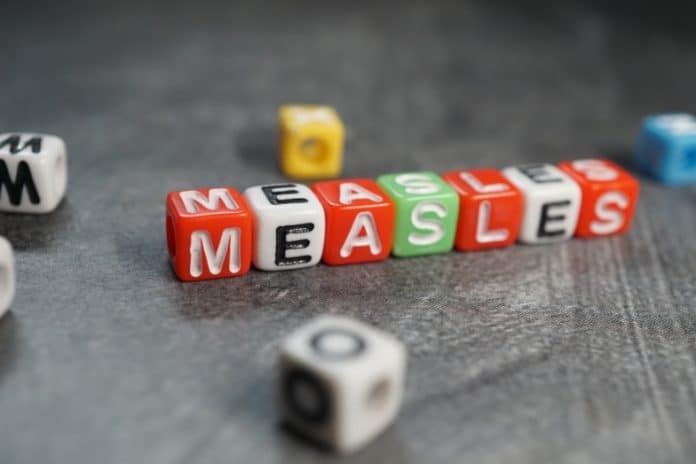Europe is experiencing an “alarming rise” in measles cases, the World Health Organization has warned.
There were 42,200 measles cases across 41 member states in the WHO European Region in 2023, WHO confirmed, up from 941 cases reported in all of 2022. The rise in cases has accelerated in recent months, and the upward trend is expected to continue if urgent measures are not taken across to prevent further spread.
“Vaccination is the only way to protect children from this potentially dangerous disease. Urgent vaccination efforts are needed to halt transmission and prevent further spread,” explained Dr Hans Henri P. Kluge, WHO Regional Director for Europe.
Children particularly at risk
Measles is a highly contagious, serious airborne disease caused by a virus. It spreads easily when an infected person breathes, coughs or sneezes. It can cause severe disease, complications, and even death. The disease can affect anyone but is most common in children. Symptoms include a high fever, cough, runny nose and a rash all over the body.
WHO says the resurgence of measles is largely attributed to a backsliding in vaccination coverage. In the WHO European Region, over 1.8 million infants missed their measles vaccination between 2020 and 2022.
The Covid-19 pandemic led to many children missing out on vaccinations, due to supply chain disruptions, resources being diverted to Covid-19 response efforts and lockdowns limiting immunization services. Misinformation about the safety of vaccines has also led to a decline in global vaccination coverage.
In the United Kingdom, the UK Health Security Agency has declared a national incident over rising measles cases. In England, parents and carers are being urged to book their children in for missed vaccines. NHS England figures show more than 3.4 million children under the age of 16 years are unprotected and at risk of catching these serious and preventable diseases.
“Urgent vaccination efforts are needed to halt transmission and prevent further spread. It is vital that all countries are prepared to rapidly detect and timely respond to measles outbreaks, which could endanger progress towards measles elimination,” said Dr Kluge.
Vaccines save lives
Measles vaccinations are safe and cost-effective. Vaccinations to prevent the disease averted 56 million deaths between 2000 and 2021.
Children should receive two doses of the vaccine to ensure they are immune. The first dose is usually given at nine months of age in countries where measles is common and 12–15 months in other countries. A second dose should be given later in childhood, usually at 15–18 months.
The measles vaccine is given alone or often combined with vaccines for mumps, rubella and/or varicella.
Find out more:

